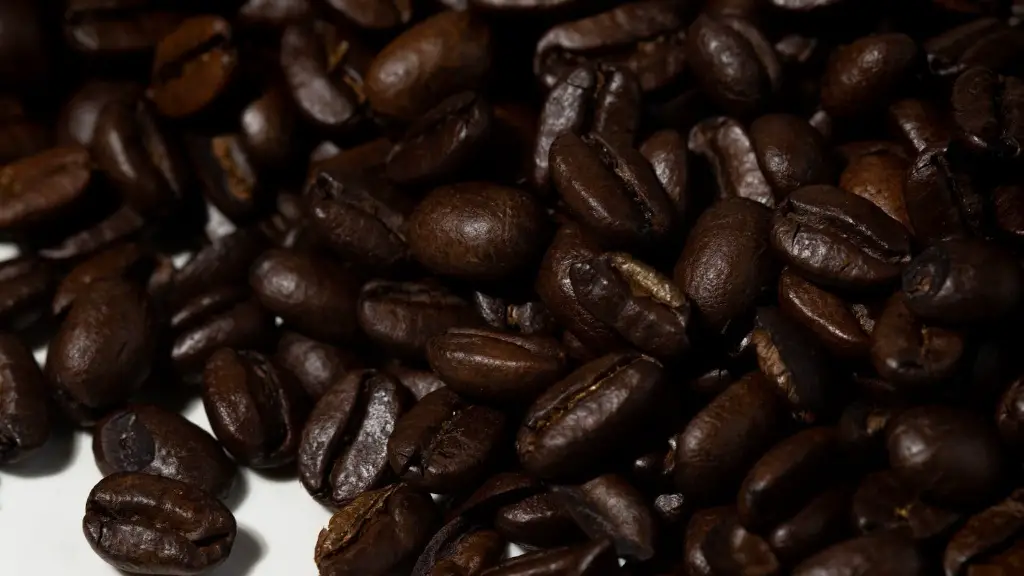Coffee is one of the most popular drinks in the world, but those who follow a vegan lifestyle have to be mindful of the ingredients and processing methods of the particular coffee blend in order to maintain their chosen lifestyle. Vegans avoid consuming or using any product that is animal-based, including dairy products and non-dairy milk substitutes. This can make it difficult to find a suitable drink to go with one’s morning cup of joe. So, how do vegans drink coffee?
Most of the traditional methods of preparing coffee—brewing with hot water and creaming with milk or a cream substitute—are not available to those who follow a vegan diet. In the past, vegans have relied on oat milk, nut milk, and soy milk to make their coffee vegan-friendly, but in recent years more plant-based milk substitutes have become available. Coconut milk, almond milk, cashew milk, and rice milk can all be used to create a vegan-friendly alternative to a conventional cappuccino or latte. These plant-based milk substitutes are typically made without the use of animal products, making them an ideal option for ethical vegans.
One of the reasons vegans choose milk substitutes over dairy milk is that most milk products contain traces of hormones and antibiotics that are used during the animal farming process. Most plant-based milk alternatives are made without the use of animal farming, and are therefore a healthier option for vegans who choose to consume milk substitutes. Additionally, the production process of some milk substitutes, such as soy milk, is more sustainable, as it involves fewer chemicals and less energy expenditure than the production of dairy milk.
Another option that vegans can choose to add to their coffee is plant-based creamers. These creamers are dairy-free, but still provide a creamy texture and taste that is similar to cow’s milk. Plant-based creamers often include natural sweeteners and spices to enhance the flavor and texture of the beverage. Additionally, some coffee brands now offer flavored syrups and extracts that are specifically tailored to those who are vegan. These syrups and extracts are naturally sweet, and contain no animal-derived products.
Finally, some vegan coffee drinkers have embraced a “black coffee” approach to their morning beverage. Many prefer to simply drink their coffee black, without the addition of any milk or creamer substitutes. This is the simplest and most straightforward option for vegans, as it requires no extra steps or ingredients to make the coffee vegan-friendly. Black coffee also tends to be lower in calories than milk-based coffee drinks.
Espresso options for Vegan coffee drinkers
Espresso is one of the most popular coffee beverages, but it can be difficult to find vegan-friendly espresso options. Thankfully, there are now many plant-based milk substitutes that can be used to create vegan-friendly espresso drinks. The most common milk substitutes used in espresso beverages include almond milk and oat milk, both of which provide a creamy texture and delicious flavor comparable to cow’s milk.
Some cafes now offer vegan espresso beverages made with coconut milk, cashew milk, and other nut-based milk substitutes. These alternatives are typically unsweetened, but can be flavored with cinnamon, nutmeg, or vanilla for a creamy, sweet espresso experience. Additionally, some cafes offer agave nectar or date syrup as an alternative to sugar as a sweetener for vegan espresso beverages. However, it is important to note that agave nectar and date syrup are derived from plants, and should be used with caution for those on a vegan diet.
When seeking a vegan espresso beverage at a cafe, the customer should inquire about the ingredients of the espresso and other drinks. Cafes may use cow’s milk, butter, or other animal-derived ingredients to prepare their beverages. Those on a vegan diet should speak to the barista before ordering to ensure that they are getting a vegan-friendly espresso drink.
Vegan Decaf Coffee
For those who prefer to enjoy decaffeinated coffee, it is important to be aware of the processing method used to remove the caffeine from the coffee beans. Some decaffeinated coffees are processed using a liquid solution that contains animal-derived ingredients. For vegans, it is important to select decaf coffee that is processed using the water method, which does not involve any animal-derived ingredients.
It can be difficult to determine which decaf coffees are prepared using the water method and which are prepared using the liquid solution method, as not all manufacturers label their products accordingly. It is important to research the companies in question, as well as to contact the manufacturer in order to ensure that their decaf coffees are vegan-friendly. Additionally, some specialty coffee shops offer vegan decaf options that are prepared with water, which is an ideal option for vegan coffee drinkers.
In some cases, decaf coffee beans may be treated with animal products during the roasting process. As the beans are heated, certain animal-derived products such as butter or lard are sometimes added to the beans to improve their flavor. For vegans, it is best to purchase decaffeinated beans from a vegan-friendly supplier who does not use animal-derived products in their roasting process.
Organic and Fair Trade Coffee options for Vegan Coffee drinkers
Vegans should also consider purchasing organic, fair trade, and ethically-sourced coffee beans, as these are typically produced without exploiting workers or animals. Many coffee companies are now certified organic, meaning they are free of chemical pesticides and fertilizers, as well as any animal-derived products. Additionally, some coffee companies are certified Fair Trade, which means they use only ethical labor practices and their coffee is produced in an environmentally-friendly manner.
Organic and fair trade coffee are typically more expensive than conventional coffee, but they are worth the cost as they are better for the environment, ethically produced, and often have a richer flavor than non-organically grown beans. Additionally, organic and fair trade coffee beans often contain fewer harmful chemicals and contaminants, making them a healthier option for vegan coffee drinkers.
Additionally, some organic and fair trade coffee companies have begun offering flavored syrups and sweeteners that are vegan-friendly. Many of these flavored syrups and sweeteners are made without the use of animal-derived ingredients and are healthier than the traditional option of adding dairy or a non-dairy cream substitute. Whether purchasing ground or whole bean coffee, vegans should pay close attention to the labels of the beans and opt for organic and/or fair trade options whenever possible.
Alternatives to Coffee for Vegan Coffee Drinkers
For those searching for an alternative to coffee, there are many vegan-friendly options. Traditional herbal teas are generally suitable for vegans, as they contain no animal-derived ingredients. Additionally, some tea companies now offer plant-based creamers, which can be used to make herbal teas more creamy and flavorful. Including spices such as cinnamon and cardamom can enhance the flavor of herbal teas and provide a taste similar to that of conventional coffee.
Additionally, some specialty cafes offer mushroom coffee, which is made from a blend of mushrooms such as lion’s mane, chaga, and reishi. This mushroom blend provides multiple health benefits, including improved cognitive function, improved immune response, and anti-inflammatory properties. Mushroom coffee is typically vegan-friendly and can provide a caffeine-free alternative for those wishing to avoid caffeine.
For those looking for a caffeinated alternative to coffee, Yerba Mate is a popular option. Yerba Mate is a South American beverage made from the leaves of the yerba mate plant. It contains caffeine, which provides a mild energy boost, and many of its other compounds have been linked to health benefits such as improved digestion and improved mental alertness. Additionally, this beverage can be purchased in either loose leaf or tea bag form and can be enjoyed hot or cold.
Conclusion
For vegans, drinking coffee can be a challenge, as most traditional methods involve the use of cow’s milk or creamers that contain animal-derived ingredients. Thankfully, plant-based milk substitutes and plant-based creamers are now widely available, making it easier for vegans to find a suitable beverage. Additionally, some specialty cafes offer vegan-friendly espresso beverages, and vegan-friendly syrups and sweeteners have become increasingly popular. For those looking for a caffeine-free alternative, herbal teas and mushroom coffee are both excellent options. By following the above tips, vegans can enjoy a delicious cup of coffee without compromising their lifestyle.




